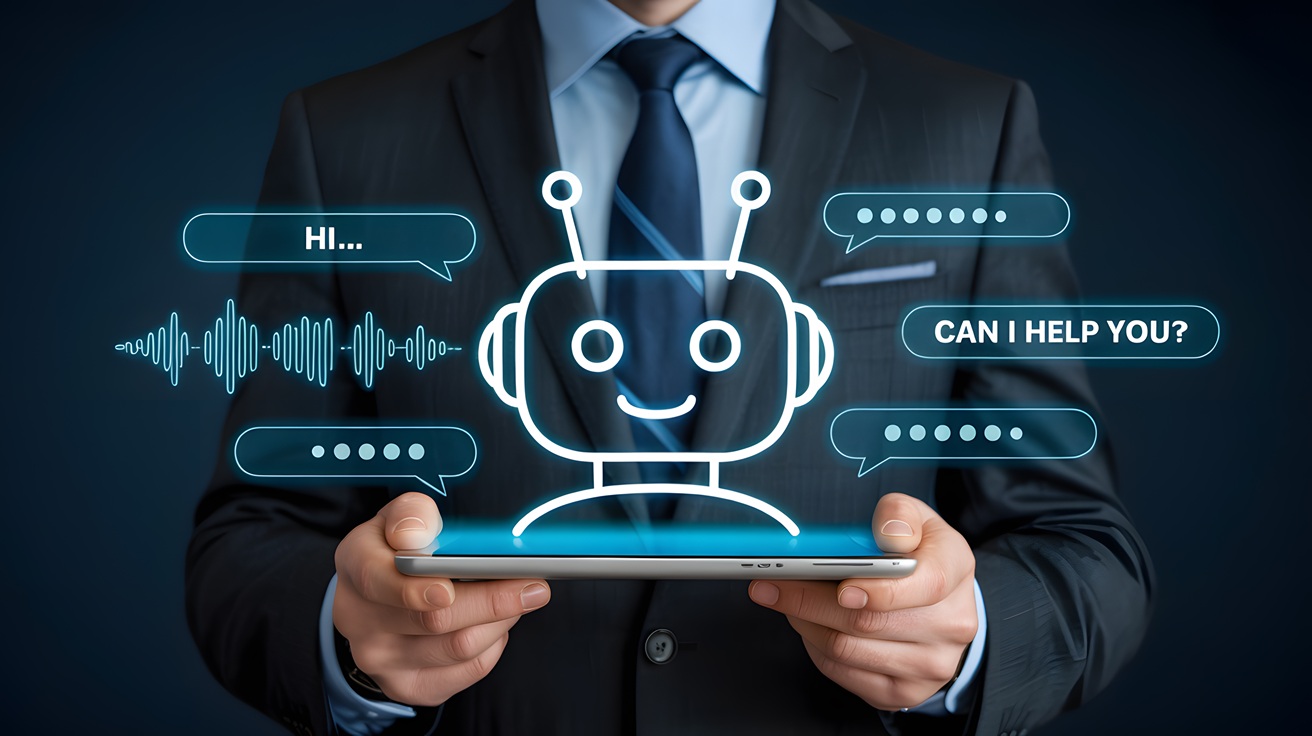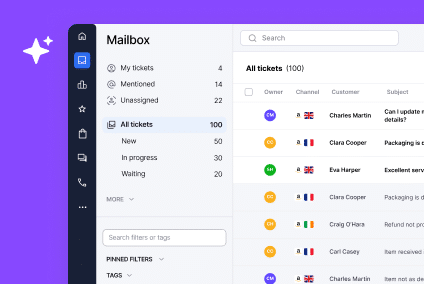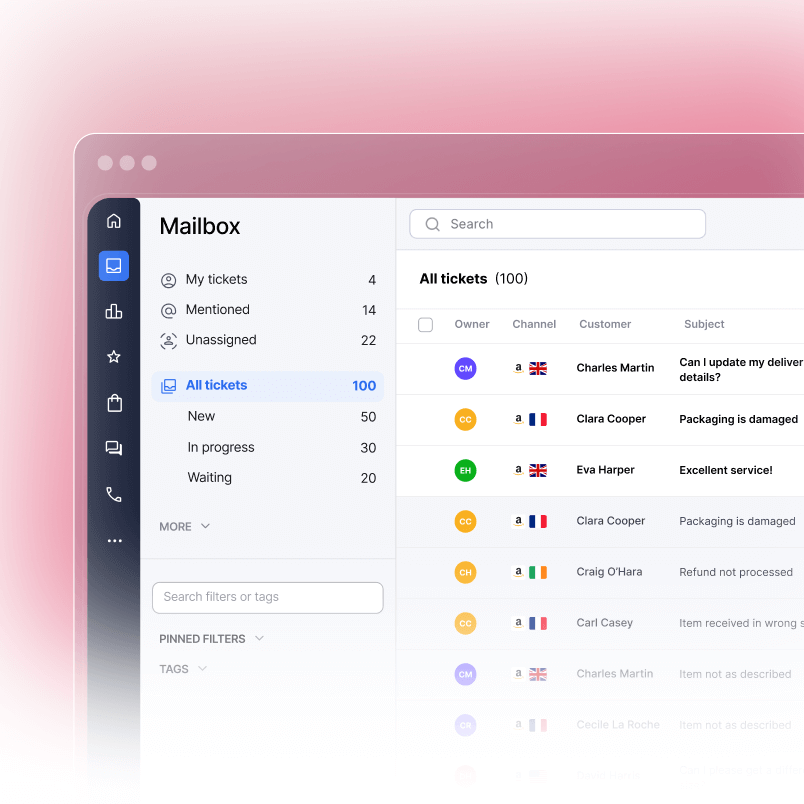Customer service automation has evolved from a nice-to-have feature to an essential business tool. As we approach 2026, artificial intelligence, machine learning, and omnichannel support are reshaping how companies interact with customers. The right automation tool can dramatically reduce response times, scale support operations efficiently, and deliver 24/7 assistance without expanding headcount.
This comprehensive guide examines the top 7 customer service automation tools that are leading the charge into 2026. Whether you’re running an eCommerce store, SaaS company, or B2B operation, understanding these platforms will help you make an informed decision about which solution best fits your needs.
What to Look for in a Customer Service Automation Tool
Before diving into specific platforms, it’s important to understand the key features that distinguish exceptional automation tools from basic helpdesk software.
Essential Features to Consider
AI and Machine Learning Capabilities: Modern automation tools leverage AI to understand customer intent, suggest responses, and even resolve simple queries without human intervention. Look for platforms that offer intelligent routing, sentiment analysis, and automated responses that learn from past interactions.
Omnichannel Support: Customers expect to reach you through their preferred channels, whether that’s email, live chat, social media, WhatsApp, or marketplace messaging. The best tools consolidate all these channels into a unified inbox.
Integration Ecosystem: Your automation tool should connect seamlessly with your existing tech stack, including eCommerce platforms, CRMs, shipping providers, and analytics tools. This integration capability directly impacts how efficiently your team can work.
Analytics and Reporting: Data-driven insights help you understand customer pain points, agent performance, and areas for improvement. Look for customizable dashboards, SLA tracking, and customer satisfaction metrics.
Scalability: As your business grows, your support tool should grow with you. Consider whether the platform can handle increased ticket volume without performance degradation.
Feature Importance Matrix
| Feature | Critical For | Nice-to-Have For |
| AI Chatbots | High-volume businesses | All businesses |
| Marketplace Integrations | eCommerce sellers | Traditional businesses |
| Multi-language Support | International companies | Local businesses |
| Advanced Analytics | Data-driven teams | Small startups |
| API Access | Tech-savvy teams | Basic users |
Top 7 Customer Service Automation Tools (2026 Edition)
1. eDesk
Website: https://www.edesk.com/
Best For: eCommerce businesses selling on multiple channels and marketplaces
eDesk stands out as the premier customer service automation platform specifically designed for eCommerce. Unlike generic helpdesk tools, eDesk understands the unique challenges of marketplace selling, multi-channel support, and order-related queries.
Key Features:
- AI-powered ticket summarization and response suggestions
- Native integrations with 250+ marketplaces, webstores, and social channels including Amazon, eBay, Shopify, TikTok Shop, and more
- Automated order data display within tickets for faster resolution
- Smart inbox that prioritizes urgent queries and approaching SLA deadlines
- AI translation for multilingual support without additional tools
- Feedback automation to boost seller ratings and reviews
- Performance analytics tailored to eCommerce metrics
- Pre-sales support features to convert browsing shoppers into buyers
Pros:
- Purpose-built for eCommerce with deep understanding of marketplace requirements
- Exceptional integration ecosystem covering virtually every major sales channel
- Automatic order context reduces resolution time significantly
- Scalable pricing suitable for growing businesses
- Dedicated support team familiar with eCommerce challenges
Cons:
- Primary focus on eCommerce may be overkill for non-retail businesses
- Learning curve for teams new to eCommerce-specific features
Pricing: Starts at $49/month for the Essential plan ($39/month with annual subscription), book a demo for detailed pricing on advanced plans
AI Advantage: eDesk’s AI analyzes customer messages to automatically categorize tickets, suggest relevant responses based on order history, and even predict which customers might leave negative feedback. The platform’s machine learning continuously improves response accuracy by learning from your team’s interactions. Learn more about eDesk AI capabilities.
2. Kustomer
Website: https://www.kustomer.com/
Best For: Businesses needing comprehensive CRM-powered customer service
Kustomer offers a modern approach to customer service by treating each interaction as part of a complete customer timeline rather than isolated tickets. This CRM-first approach provides powerful context for support teams.
Key Features:
- Timeline-based customer view showing entire interaction history
- Omnichannel support across email, chat, SMS, voice, and social
- AI-powered chatbots and automated workflows
- Custom objects and data fields for personalization
- Intelligent routing based on customer data and agent skills
- Business intelligence and analytics dashboards
Pros:
- Holistic customer view improves personalization
- Flexible customization options for unique workflows
- Strong automation capabilities
- Modern, intuitive interface
- Good integration options with popular business tools
Cons:
- Higher learning curve due to CRM complexity
- Premium pricing may be prohibitive for smaller businesses
- Less specialized for eCommerce marketplace scenarios
- Setup can be time-intensive
Pricing: Custom pricing, typically starts around $89/user/month
AI Advantage: Kustomer’s AI Assistant helps agents with smart suggestions, auto-responses, and intelligent ticket routing based on customer data and past interactions, though it lacks eCommerce-specific intelligence.
3. Help Scout
Website: https://www.helpscout.com/
Best For: Small to medium businesses prioritizing simplicity and email-based support
Help Scout focuses on delivering a straightforward, email-centric support experience that feels personal rather than like a traditional ticketing system.
Key Features:
- Shared inbox that looks like email, not a ticket queue
- Knowledge base with SEO optimization
- Live chat and messaging
- Customer management and notes
- Workflow automation and saved replies
- Reporting and customer satisfaction surveys
Pros:
- Very user-friendly with minimal training required
- No ticket numbers, making conversations feel more personal
- Excellent for email-focused support teams
- Transparent, straightforward pricing
- Strong focus on customer experience
Cons:
- Limited advanced automation compared to enterprise platforms
- Fewer integrations than larger competitors
- Not optimized for marketplace or multi-channel eCommerce
- Basic AI capabilities
Pricing: Starts at $20/user/month
AI Advantage: Help Scout offers AI Summarize to quickly understand long conversation threads and AI Assist for drafting responses, though these features are relatively basic compared to more advanced platforms.
4. Intercom
Website: https://www.intercom.com/
Best For: SaaS companies focused on conversational support and user onboarding
Intercom pioneered the conversational support approach, blending live chat, chatbots, and targeted messaging into one platform.
Key Features:
- Advanced chatbot builder with branching logic
- Proactive messaging based on user behavior
- Product tours and user onboarding flows
- Team inbox for collaboration
- Customer data platform integration
- A/B testing for messaging campaigns
Pros:
- Excellent for proactive customer engagement
- Strong focus on user experience
- Powerful automation for SaaS workflows
- Beautiful, modern interface
Cons:
- Premium pricing structure
- Can be overwhelming with numerous features
- Not ideal for traditional eCommerce support scenarios
- Limited marketplace integrations
Pricing: Starts at $74/month base fee plus per-seat charges
AI Advantage: Intercom’s Resolution Bot uses natural language processing to understand customer questions and provide relevant answers from your knowledge base, learning which articles best resolve specific issues over time.
5. Tidio
Website: https://www.tidio.com/
Best For: Small eCommerce stores looking for affordable live chat and chatbot solutions
Tidio positions itself as an accessible entry point for businesses wanting to add live chat and basic automation without major investment.
Key Features:
- Visual chatbot builder
- Live chat with typing insights
- Basic ticket management
- Mobile app for on-the-go support
- Pre-built chatbot templates
- Integration with popular eCommerce platforms
Pros:
- Very affordable pricing
- Easy setup with minimal technical knowledge
- Good selection of chatbot templates
- Suitable for solo entrepreneurs and small teams
Cons:
- Limited advanced automation features
- Basic reporting compared to enterprise solutions
- Not designed for high-volume support operations
- Fewer integrations than comprehensive platforms
Pricing: Free plan available, paid plans start at $29/month
AI Advantage: Tidio’s AI chatbot, Lyro, can handle common customer questions automatically, though its capabilities are more basic compared to enterprise-grade AI systems.
6. Zoho Desk
Website: https://www.zoho.com/desk/
Best For: Businesses already using Zoho ecosystem products
Zoho Desk integrates seamlessly with other Zoho products, making it an excellent choice if you’re already invested in the Zoho suite of business tools.
Key Features:
- AI assistant (Zia) for automation
- Multi-channel support
- Context-aware help widgets
- Blueprint automation for complex workflows
- Integration with Zoho CRM and other Zoho products
- Customer happiness ratings
Pros:
- Excellent value for existing Zoho customers
- Strong automation capabilities
- Good reporting and analytics
- Competitive pricing structure
Cons:
- Best value realized when using multiple Zoho products
- Interface can feel dated compared to newer platforms
- Limited marketplace integrations outside Zoho ecosystem
- Setup complexity for advanced features
Pricing: Free plan for up to 3 agents, paid plans start at $14/agent/month
AI Advantage: Zia, Zoho’s AI assistant, can predict ticket sentiment, suggest relevant knowledge base articles, and automate routine tasks based on historical patterns.
7. HubSpot Service Hub
Website: https://www.hubspot.com/products/service
Best For: Companies using HubSpot for marketing and sales who want unified customer data
HubSpot Service Hub completes the HubSpot ecosystem, connecting customer service data with marketing and sales activities for a complete view of the customer journey.
Key Features:
- Shared inbox for team collaboration
- Live chat and chatbot builder
- Knowledge base with SEO optimization
- Customer feedback surveys
- Conversation routing and automation
- Deep integration with HubSpot CRM
Pros:
- Seamless data flow across marketing, sales, and service
- User-friendly interface
- Free plan available with basic features
- Strong community and educational resources
Cons:
- Can become expensive as you scale
- Best suited for HubSpot ecosystem users
- Limited eCommerce-specific features
- Some advanced automation requires higher tiers
Pricing: Free plan available, paid plans start at $45/month per 2 users
AI Advantage: HubSpot uses AI for ticket routing, conversation insights, and predictive lead scoring that extends into the service context, helping identify at-risk customers.
Comparison Table: Tools at a Glance
| Tool | Best For | Starting Price | AI Features | eCommerce Focus | Notable Integration |
| eDesk | eCommerce sellers | $49/mo ($39/yr) | Advanced | ⭐⭐⭐⭐⭐ | 250+ marketplaces |
| Kustomer | CRM-focused support | ~$89/user/mo | Advanced | ⭐⭐ | Popular business tools |
| Help Scout | Email-first teams | $20/user/mo | Basic | ⭐⭐ | Essential tools |
| Intercom | SaaS companies | $74/mo base | Advanced | ⭐ | Product analytics platforms |
| Tidio | Small stores | $29/mo | Basic | ⭐⭐⭐ | Shopify, WooCommerce |
| Zoho Desk | Zoho users | $14/agent/mo | Moderate | ⭐⭐ | Zoho ecosystem |
| HubSpot Service Hub | HubSpot users | $45/mo | Moderate | ⭐⭐ | HubSpot CRM |
Choosing the Right Tool for Your Business
Selecting the ideal customer service automation tool depends on several factors specific to your business context.
Decision-Making Framework
For eCommerce Businesses: If you sell on marketplaces like Amazon, eBay, Walmart, or TikTok Shop, prioritize platforms with native marketplace integrations. eDesk’s purpose-built eCommerce focus makes it the clear choice for multi-channel sellers. The time saved by having order data automatically populated in tickets and responses automatically meeting marketplace communication requirements can be substantial. Explore how eDesk handles multichannel eCommerce support.
For SaaS Companies: Look for tools that excel at conversational support and proactive messaging. Intercom or HubSpot Service Hub work well in this context, especially if you need to guide users through product features or onboard new customers.
For CRM-Centric Organizations: If you need deep customer data integration and timeline-based support, Kustomer’s CRM-first approach provides comprehensive customer context.
For Small Teams with Limited Budgets: Help Scout or Tidio provide solid functionality without breaking the bank. Consider starting with free or low-cost plans and upgrading as your needs grow.
Implementation Checklist
Before committing to a platform, verify:
- ✅ Integration compatibility with your existing tools
- ✅ Availability of features critical to your workflow
- ✅ Pricing structure fits your budget at current and projected scale
- ✅ Training resources and support availability
- ✅ Trial period to test with real customer interactions
- ✅ Data migration support if switching from another platform
- ✅ Mobile app availability for remote team members
- ✅ Compliance with relevant regulations (GDPR, CCPA, etc.)
Most platforms, including eDesk, offer demo periods or trial accounts. Take advantage of these to test with actual customer queries before making a financial commitment. Try eDesk free for 14 days to experience eCommerce-specific automation firsthand.
Future Trends in Customer Service Automation
As we move deeper into 2026 and beyond, several emerging trends will shape the customer service automation landscape.
Generative AI and Large Language Models
The next generation of AI customer support tools will leverage generative AI similar to ChatGPT to understand complex queries and generate human-like responses. Unlike traditional chatbots that rely on pre-programmed scripts, these systems will understand context and nuance, making conversations feel more natural.
eDesk is already incorporating these capabilities, with AI that understands the full context of customer orders, shipping status, and past interactions to provide accurate, helpful responses that sound like they came from a knowledgeable human agent.
Voice-Activated Support Systems
Voice assistants are moving beyond simple commands to handle complex support scenarios. Expect to see more integration between voice commerce platforms like Amazon Alexa and customer service tools, allowing customers to check order status or request help through voice commands.
Predictive Support and Proactive Service
Advanced analytics will enable tools to predict customer issues before they arise. For example, if a shipment is delayed, automation systems will proactively notify the customer and offer solutions rather than waiting for them to reach out with a “where is my order” inquiry. Learn more about reducing WISMO tickets.
Hyper-Personalization Through Data Integration
Customer service tools will increasingly leverage data from across the entire customer journey, marketing interactions, purchase history, browsing behavior, and more, to provide deeply personalized support experiences that anticipate needs and preferences.
Multilingual AI Agents
Breaking down language barriers will become seamless as AI translation and multilingual support mature. Agents will be able to respond in their native language while customers receive responses in theirs, all automated in real-time. eDesk’s AI translation capabilities already demonstrate this trend’s potential.
Frequently Asked Questions (FAQs)
What is the best AI customer service software in 2026?
The “best” tool depends on your specific needs. For eCommerce businesses, eDesk offers the most comprehensive AI features tailored to online selling, including automated order context, marketplace compliance, and predictive feedback management. For SaaS companies, Intercom’s conversational AI excels. Businesses needing CRM-powered support might prefer Kustomer. Evaluate based on your industry, business size, and specific automation requirements.
Can small businesses afford customer service automation?
Absolutely. Several platforms offer free or low-cost entry tiers suitable for small businesses. Help Scout starts at $20/user/month, Tidio starts at $29/month, and Zoho Desk has a free plan for up to 3 agents. eDesk’s Essential plan starts at just $49/month ($39/month with annual billing), making professional eCommerce automation accessible even for growing businesses. The key is starting with core features you need and expanding as your business grows. Consider that automation typically reduces support costs by 20-40%, making the investment worthwhile even for smaller operations.
How does eDesk compare to other customer service tools?
eDesk is purpose-built for eCommerce, while most other platforms are general-purpose helpdesks. eDesk provides native integrations with 250+ marketplaces and automatically pulls order data into tickets, dramatically reducing resolution time for eCommerce queries. Other tools like Help Scout or Kustomer offer broader flexibility across industries but require significant configuration to match eDesk’s eCommerce-specific functionality. For online sellers, especially those on multiple channels, eDesk typically delivers faster implementation and better ROI. Other platforms may be preferable for companies with complex non-eCommerce support needs.
Are AI chatbots better than human support?
AI chatbots and human support serve different but complementary roles. Chatbots excel at handling high-volume, repetitive queries like order status, shipping information, return policies, and common troubleshooting questions. They provide instant responses 24/7 without wait times. However, human agents are essential for complex problems, emotionally charged situations, and queries requiring judgment or empathy. The best approach combines both, using AI to handle routine queries while freeing human agents to focus on cases that benefit from personal attention.
What’s the ROI of using automated support tools?
Organizations typically see ROI from customer service automation through multiple channels. Most businesses report 20-40% reduction in support costs, 50-70% faster response times, improved customer satisfaction scores, and increased agent productivity allowing teams to handle 2-3x more tickets. For eCommerce specifically, faster response times directly correlate with improved seller ratings, which drive more sales. Most businesses achieve positive ROI within 3-6 months of implementation.
Do I need technical expertise to set up these tools?
Most modern customer service automation tools, including eDesk, are designed for non-technical users. Initial setup typically involves connecting your support channels (email, social media, marketplaces), configuring basic automation rules, and training your team. Most platforms offer guided onboarding, video tutorials, and support during setup. More complex customizations might benefit from technical knowledge, but basic implementation rarely requires IT expertise. Book a demo with eDesk to see how quickly you can get started.
Take Your Customer Service to the Next Level
Choosing the right customer service automation tool can transform your support operations, delighting customers while reducing costs and scaling efficiently. For eCommerce businesses in particular, purpose-built solutions like eDesk offer unmatched advantages through deep marketplace integrations, automated order context, and AI features designed specifically for online selling challenges.
The automation landscape will continue evolving rapidly as AI capabilities advance. The tools that succeed will be those that balance powerful automation with human-centered design, making it easy for support teams to deliver exceptional experiences at scale.
Ready to see how eDesk can revolutionize your eCommerce customer support? Book a personalized demo today or start your free 14-day trial to experience the difference purpose-built eCommerce automation can make.




